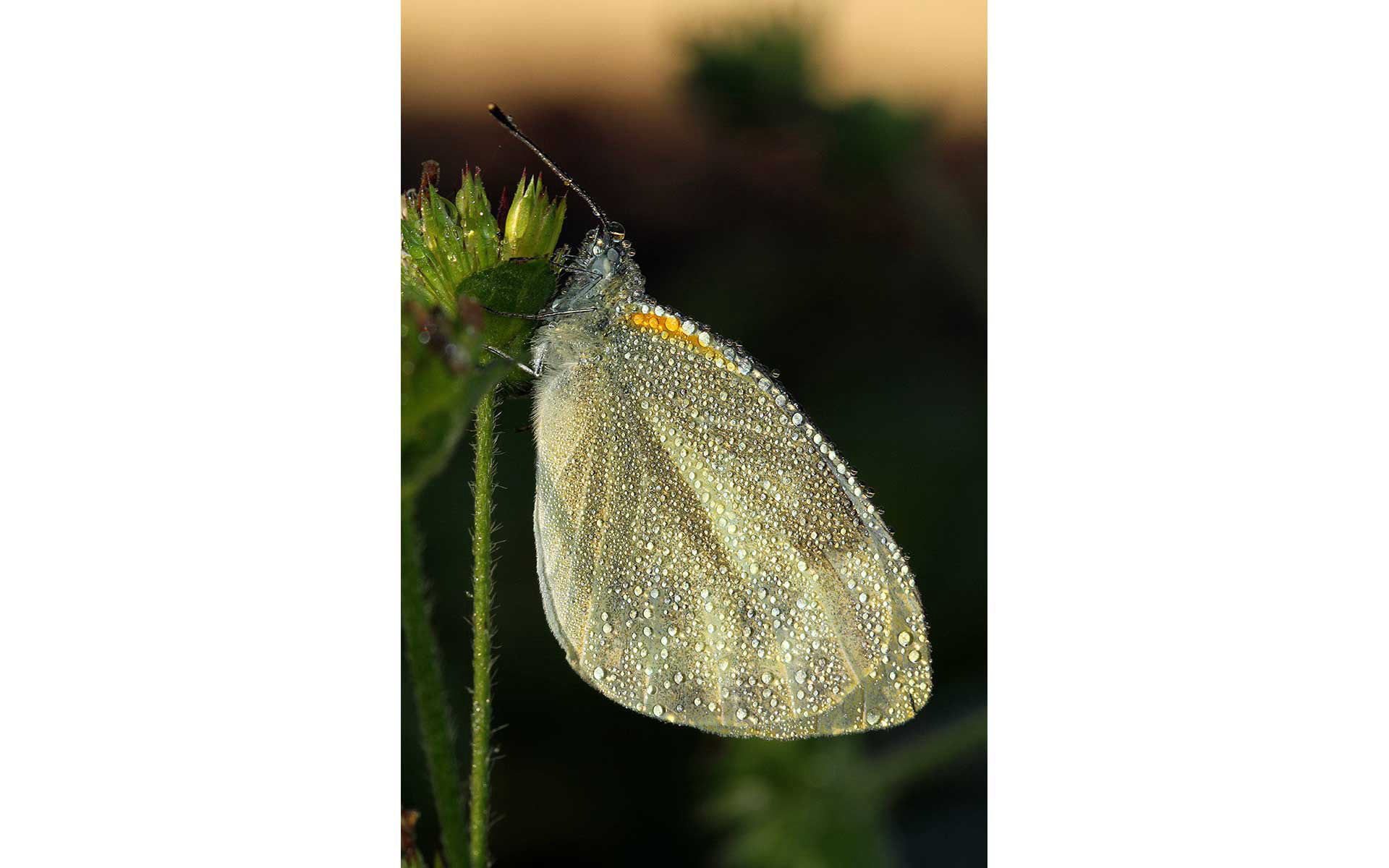
蝴蝶的翅膀是飛行的構造,翅膀上的鱗片是由毛特化而成,緊密排列如屋瓦,除了顯現出各種美麗的色彩外,還有吸熱、發香、抗蜘蛛網的功用。表面有蠟質加上鱗片本身的奈米結構,更具有防水的效果。
在寒冷的一月,雖然太陽已升起,但清晨的山谷裡溫度低、水氣重,臺灣紋白蝶身上滿是露珠。
如果不是身著「與生俱來」的雨衣,如何能有效防潑水呢?留下遠方些許的亮光,與蝴蝶身上晶瑩剔透的露珠作為對比,表達等待黎明、期待再次飛翔的渴望。
Butterfly wings are designed for flight.
The scales on the sides of the wings are
derivatives of specialized hairs, closely
arranged like tiles. In addition to their
beautiful colors, they absorb heat, release
scent and aid in escape from spider webs.
The surface of each scale is covered in wax
and has its own nanostructure, for
waterproofing. In January, although the sun
is up, it is still chilly and damp in the valley.
A Pieris canidia butterfly is covered in
dewdrops. Without its “built-in” raincoat,
how can it effectively resist water? The light
from afar and the sparkling dewdrops form
a contrast, symbolizing a wait for the dawn
and the desire for the next flight.
展示地點
第二特展室
展示時間
2019.07.13 - 2020.02.16
© 國立自然科學博物館版權所有